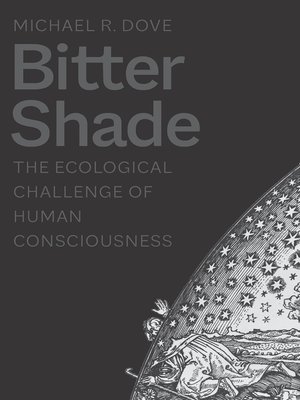Bitter Shade
ebook ∣ The Ecological Challenge of Human Consciousness · Yale Agrarian Studies Series
By Michael R. Dove

Sign up to save your library
With an OverDrive account, you can save your favorite libraries for at-a-glance information about availability. Find out more about OverDrive accounts.
Find this title in Libby, the library reading app by OverDrive.



Search for a digital library with this title
Title found at these libraries:
| Library Name | Distance |
|---|---|
| Loading... |
A seminal anthropological work on the paradoxical relationship between human consciousness and the environment
This book asks an age-old question about the relationship between human consciousness and the environment: How do we think about our own thoughts and actions? How can we transcend the exigencies of daily life? How can we achieve sufficient distance from our own everyday realities to think and act more sustainably?
To address these questions, Michael R. Dove draws on the results of decades of research in South and Southeast Asia on how local cultures have circumvented the "curse of consciousness"—the paradox that we cannot completely comprehend the ecosystem of which we are part. He distills from his ethnographic, ecological, and historical research three principles: perspectivism (seeing oneself from outside oneself), metamorphosis (becoming something that one is not), and mimesis (copying something that one is not), which help a society to transcend the hubris and myopia of everyday existence and achieve greater insight into its ecosystem.
This book asks an age-old question about the relationship between human consciousness and the environment: How do we think about our own thoughts and actions? How can we transcend the exigencies of daily life? How can we achieve sufficient distance from our own everyday realities to think and act more sustainably?
To address these questions, Michael R. Dove draws on the results of decades of research in South and Southeast Asia on how local cultures have circumvented the "curse of consciousness"—the paradox that we cannot completely comprehend the ecosystem of which we are part. He distills from his ethnographic, ecological, and historical research three principles: perspectivism (seeing oneself from outside oneself), metamorphosis (becoming something that one is not), and mimesis (copying something that one is not), which help a society to transcend the hubris and myopia of everyday existence and achieve greater insight into its ecosystem.







